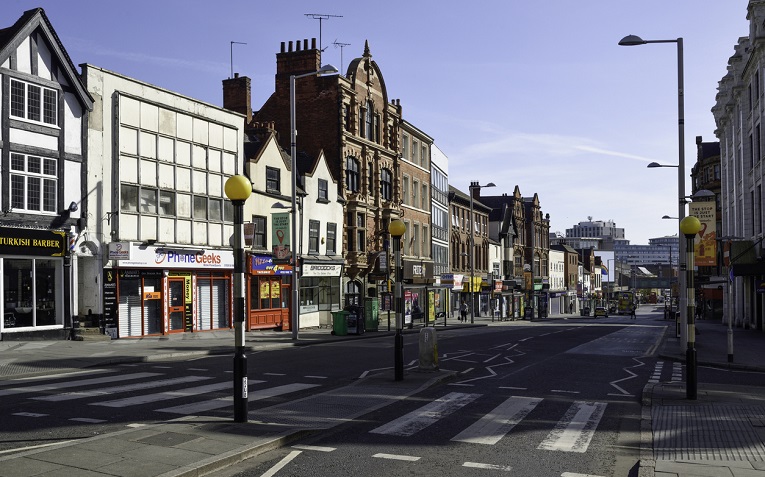A guide to government grants for businesses during second England lockdown

Posted: Tue 17th Nov 2020
The government has released details of grants for businesses affected by the second lockdown in England running from 5 November until 2 December. The grants are being administered by local authorities.
Local Restrictions Support Grants (Closed)
This grant is for businesses with premises forced to close for a minimum 14 days due to the second lockdown and other coronavirus restrictions.
Businesses occupying premises with a rateable value over £15,000 and less than £51,000 on the date the local restrictions started will receive a payment of £2,000 per 28-day qualifying restriction period. Businesses will be paid £1,000 every 14 days.
Businesses occupying premises with a rateable value of exactly £51,000 or above on the date the local restrictions started will receive £3,000 per 28-day qualifying restriction period. Businesses will be paid £1,500 every 14 days.
This funding is available for businesses required to close due to restrictions that had their first full day of restrictions on or after the 9 September which means businesses required to close in tier 2 and 3 areas before the national lockdown began are eligible for the grants.
Local Restrictions Support Grant (Open)
This grant is for businesses that are not legally required to close but which are severely impacted by the lockdown restrictions on socialising.
The government said local authorities should provide grant funding under the following tiers, unless there is a local economic need to deviate:
Grants of up to £934 per 28-day period for businesses occupying premises with a rateable value of exactly £15,000 or under on the date the local restrictions started.
Grants of up to £1,400 per 28-day period for businesses occupying premises with a rateable value over £15,000 and less than £51,000 on the date the local restrictions started.
Grants of up to £2,100 per 28-day period for businesses occupying premises with a rateable value of exactly £51,000 or above on the date the local restrictions started.
The government guidance says it "would expect the funding to be targeted at hospitality, hotel, bed & breakfast and leisure businesses" but "we want local authorities to exercise their local knowledge and discretion and we recognise that economic need will vary across the country. Therefore, while we are setting suggested criteria for the funding, we are allowing local authorities to determine exactly which businesses to support."
Local Restrictions Support Grant (Sector)
This grant is for businesses that have been required to close nationally in England since 23 March 2020. Eligible businesses are:
Nightclubs, dance halls, and discotheques
Sexual entertainment venues and hostess bars
Grants are as follows:
Businesses occupying premises with a rateable value of exactly £15,000 or under on 5 November will receive a payment of £667 per 14-day qualifying restriction period.
Businesses occupying premises with a rateable value over £15,000 and less than £51,000 on 5 November will receive a payment of £1,000 per 14-day qualifying restriction period.
Businesses occupying premises with a rateable value of exactly £51,000 or above on 5 November will receive a payment of £1,500 per 14-day qualifying restriction period.
Subject to state aid limits, businesses will be entitled to receive a grant for each eligible hereditament per 14-day period of national restrictions that require them to close from 1 November 2020.
Additional Restrictions Grant (ARG)
This additional funding is provided to local authorities in England for business support activities. If councils use this funding for direct business support grants, the same conditions of grant apply as for the Local Restrictions Support Grant (Closed), but they have discretion to alter the amount of funding offered to individual businesses and the frequency of payment.
Local authorities can determine how much funding to provide to businesses from the ARG funding and exactly which businesses to target. But the government is encouraging local authorities to develop discretionary grant schemes to help businesses which, while not legally forced to close, are severely impacted by the restrictions. This could businesses which supplying the retail, hospitality, and leisure sectors, businesses in the events sector and businesses outside the business rates system but are effectively forced to close such as market traders.
Local authorities can use ARG funding to provide additional support to larger local businesses which are important to the local economy, on top of the funding provided to those businesses via the LRSG (Closed) scheme.
Get business support right to your inbox
Subscribe to our newsletter to receive business tips, learn about new funding programmes, join upcoming events, take e-learning courses, and more.
Start your business journey today
Take the first step to successfully starting and growing your business.
Join for free
